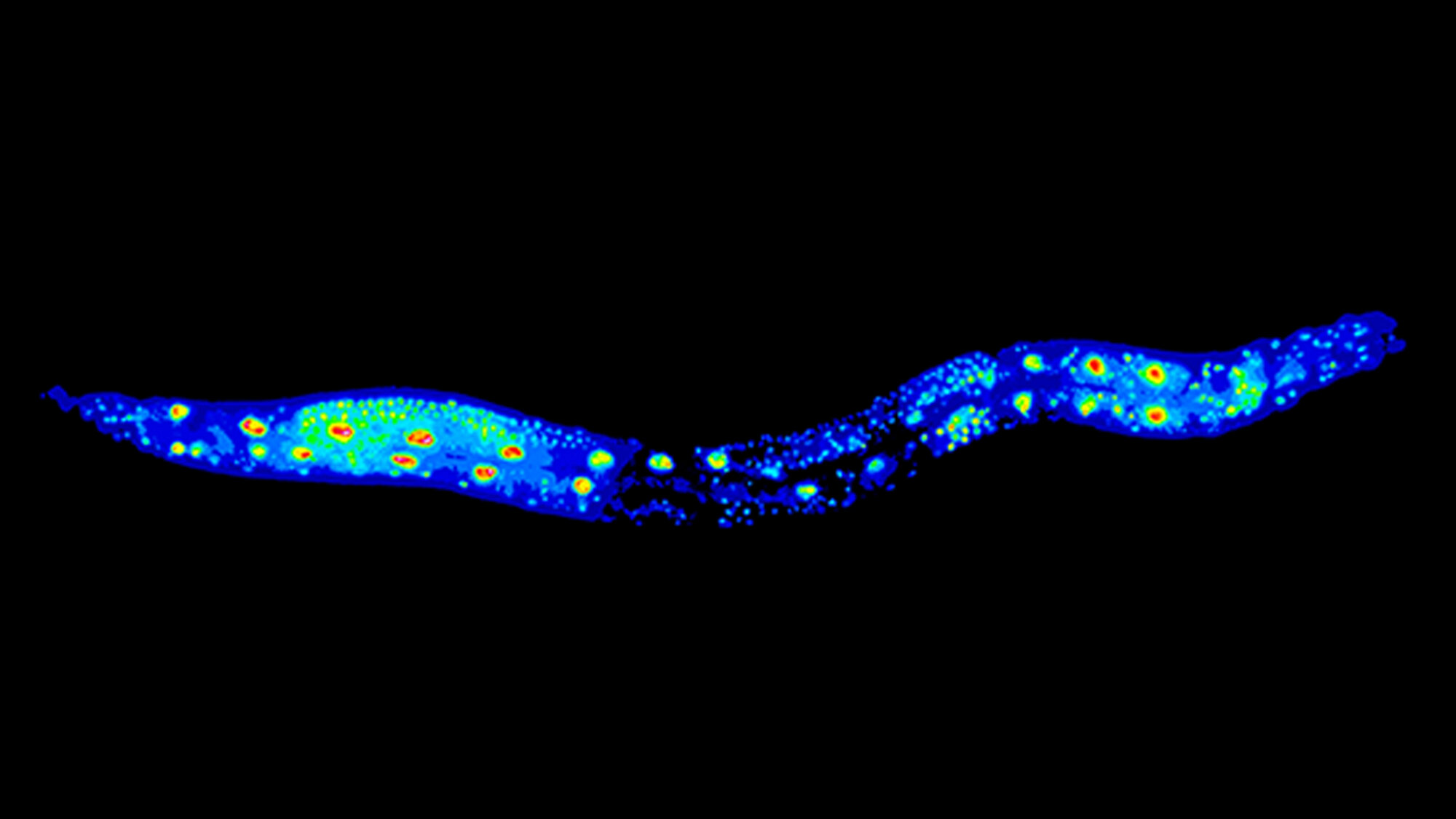The roundworm Caenorhabditis elegans is an important model organism in aging research. The worm in the picture is tagged GFP::RNP-6. Photo credit: Max Planck Institute for Biology of Ageing
Researchers at the Max Planck Institute for Biology of Aging in Cologne have now discovered that the control of RNA metabolism is crucial for regulating the longevity of animals. They found that worms live longer when certain RNAs are processed differently during RNA maturation. This could be an additional way for organisms to control the aging process.
RNA is an important transmitter of information in our cells and serves as the blueprint for the production of proteins. When freshly formed RNA is processed, so-called introns are excised to produce the mature mRNA coding for protein. This cutting is called “splicing” and is controlled by a complex called the “splicesome”.
Long-lived worms
“We found a gene called PUF60 in worms that is involved in RNA splicing and regulates lifespan,” says Max Planck scientist Dr. Wenming Huang, who made the discovery. Mutations in this gene caused inaccurate splicing and retention of introns within specific RNAs. Consequently, lower amounts of the corresponding proteins were formed from this RNA. Surprisingly, worms with this mutation in the PUF60 gene lived significantly longer than normal worms.
Some proteins that play a role in the mTOR signaling pathway were particularly affected by this faulty production. This signaling pathway is an important sensor for the availability of food and serves as the control center for cell metabolism. As a target of potential antiaging drugs, it has long been the focus of aging research. The researchers were also able to show in human cell cultures that reduced PUF60 activity leads to reduced activity in the mTOR signaling pathway.
PUF60 mutation in humans
“We believe that by altering the fate of introns in RNAs, we have discovered a novel mechanism that regulates mTOR signaling and longevity,” says Max Planck Director Adam Antebi, who led the study published in aging in nature.
“Interestingly, there are also human patients with similar mutations in the PUF60 gene. These patients have growth and neurodevelopmental disorders. Perhaps these patients could be helped in the future by administering drugs that control mTOR activity. But of course more research is needed.”
A balancing act between immunity and longevity
Wenming Huang et al., Decreased spliceosome fidelity and egl-8 intron retention inhibit mTORC1 signaling to promote longevity, aging in nature (2022). DOI: 10.1038/s43587-022-00275-z
Provided by the Max Planck Society
Citation: Study Examines Longer Life Due to Faulty RNA Processing (2022 September 20) Retrieved September 21, 2022 from https://phys.org/news/2022-09-longer-life-due-faulty-rna.html
This document is protected by copyright. Except for fair trade for the purpose of private study or research, no part may be reproduced without written permission. The content is for informational purposes only.
#Study #examines #longer #life #defective #RNA #processing


Leave a Comment